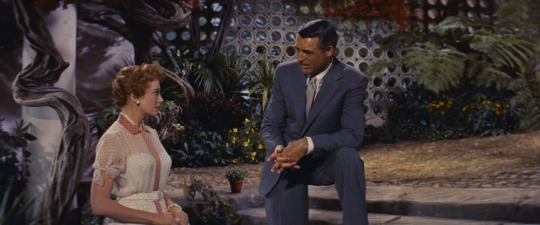#French Affair
Explore tagged Tumblr posts
Text

Yeah I, I got those palpitations. Those boom, boom, booms… ♫
#glen powell#top gun maverick#jake seresin#devotion#tom hudner#aviation#katy perry#crush#french affair#my heart goes boom#us navy#navy#u.s. navy#united states navy#military#soldiers#camo#camouflage#cap#hats#beach#sunglasses#sunny#tyler owens#twisters#gary johnson#hitman#golden boy#it boy
60 notes
·
View notes
Text
youtube

Release: March 1, 2000
Lyrics:
Do what you like
What you want tonight?
Show me all your loving
And I make you high
Tell me what you like?
Is burning in your eyes
Baby, don't be shy
Your love was no disguise
Tell me what you like
Do what you like
What you want tonight?
Do what you like
If you want it like this
Or if you want like that
You've gonna tell me what's inside your mind
You've gonna show me what you really like
If you want me to do
What you really wanna do
You gonna show all your secret's to me
So I can see
Tell me all your fantasy
And now I'll tell you mine
I want you close to me
I want you for tonight
Gonna let your body flow
I don't see nothing wrong
Baby, don't go too so slow
And keeping it going on
Do what you like
What you want tonight?
Show me all your loving
And I make you high
Tell me what you like?
Is burning in your eyes
Baby, don't be shy
Your love was no disguise
Tell me what you like
Do what you like
What you want tonight?
Do what you like
If you wanna make it real
What you really, really feel
You gonna tell me
And express yourself
Don't put your lovin' on a shelf
If you want us to be one
Not only have some nights of fun
You gonna show all your secrets to me
So I can see
Tell me all your fantasy
And now I'll tell you mine
I want you close to me
I want you for tonight
Gonna let your body flow
I don't see nothing wrong
Baby, don't go too so slow
And keeping it going on
Do what you like
What you want tonight?
Show me all your loving
And I make you high
Tell me what you like?
Is burning in your eyes
Baby, don't be shy
Your love was no disguise
Do what you like
What you want tonight?
Show me all your loving
And I make you high
Tell me what you like?
Is burning in your eyes
Baby, don't be shy
Your love was no disguise
Songwriter:
Do what you like
Do what you like
Tell me what you like?
Do what you like
Karsten Dreyer / Barbara Alcindor / Torsten Dreyer
ArtistFacts:
👉📖
#new#new music#my chaos radio#French Affair#Do what you like#music#spotify#youtube#music video#youtube video#good music#hit of the day#video of the day#2000s#2000s music#2000s video#2000s charts#2000#pop#electronic#house#progressive house#dance#electro dance#lyrics#artistfacts#1448
2 notes
·
View notes
Text
💿 A SONG FOR YOU ;)
● ASFY #002 ★ comme ci comme ça by French Affair & @claudiofo
♥︎ bon voyage + @aesthiticus & @lasciatemistarelamattina


48 notes
·
View notes
Text

(1970)
#Family Affair#comic book#1970#TV show#Brian Keith#Uncle Bill#Sebastian Cabot#Mr French#Gold Key comics#Kathy Garver#Cissy Davis#Johnny Whitaker#Jody Davis#Anissa Jones#Buffy Davis#vintage television#sitcom#1960s#1970s
104 notes
·
View notes
Photo



An Affair to Remember Leo McCarey. 1957
Stairs 06230 Villefranche-sur-Mer, France See in map
See in imdb
#leo mccarey#an affair to remember#cary grant#deborah kerr#villefranche sur mer#villefranche-sur-mer#movie#cinema#film#location#google maps#street view#1957#french riviera#provence-alpes-côte d'azur#alpes-maritimes
90 notes
·
View notes
Text
A connu meilleur jeudi
#comme dirait l'autre#on s'est pas fait chier à faire des jolis affiches NFP pour avoir un vieux briscard#certainement impliqué dans 54 affaires de detournement de fond#upthebaguette#french politics
48 notes
·
View notes
Text

14 November 2024









#marie antoinette#diamond necklace#queen marie antoinette#french queen#france#sotheby's#historical jewelry#guillotine#king louie XVI#french revolution#1700s#18th century#affair of the diamond necklace#scandal#jeanne de la motte#bond street#marquess of anglesey#anglesey family#coronation 1937#coronation 1953#queen elizabeth ll#king george VI#french history#history
21 notes
·
View notes
Text
youtube

Release: January 10, 2000
Lyrics:
La di da da la la la la la la
La di da da la la la la la la
La di da da la la la la la la
La di da da la la la la la la
I'm walking down the street and my heart goes boom
In a minute we will meet, and my heart goes boom
When we are together, I would love forever
I'm walking down the street and my heart goes boom, boom, boom
And my heart goes boom
Baby be my lover, I don't want no other
What I really, really, really want is you
I don't need no education to be conversation for the things I want to do
Baby be my lover, I don't want no other
What I really, really, really want its true
I can't wait to see you, wrap my arms around you
Show you what I really wannna do
La di da da la la la la la la
La di da da la la la la la la
La di da da la la la la la la
La di da da la la la la la la
Jusqu'à presént
Je n'ai pas senti la force de ton amour
Si tu veux tout savoir
Je sais bien qu'un jour
Nous nous reverrons
Et ça pour toujours
Oh mon amour
Laisse-moi te toucher
Caresser ta peau, ça me fait rêver
Danse sur les rimes
Qui me font vibre
Je t'aime pour toujours
Et ça tu le sais
You're kisses are so sweet and my heart goes boom
You're the only one I need and my heart goes boom
The world keeps turning, my heart keeps burning
I'm walking down the street and my heart goes boom, boom, boom
And my heart goes boom
Baby be my lover, I don't want no other
What I really, really, really want its true
I can't wait to see you, wrap my arms around you
Show you what I really wanna do
Songwriter:
La di da da la la la la la la
La di da da la la la la la la
La di da da la la la la la la
La di da da la la la la la la
Barbara Alcindor / Karsten Dreyer / Torsten Dreyer
SongFacts:
"My Heart Goes Boom (La Di Da Da)" is a song by the German dance-pop group French Affair. It was released in January 2000 as the lead single from their debut album Desire (2000). The song became a hit worldwide, reaching the top of the charts in Germany and Austria and reaching the top 5 in Denmark, France, Italy, Spain and Switzerland. Although the song is predominantly sung in English, it contains a verse in French.
#new#new music#my chaos radio#French Affair#My heart goes boom#music#spotify#youtube#hit of the day#music video#video of the day#youtube video#good music#2000s#2000s music#2000s video#2000s charts#2000#pop#electronic#funk soul#house#synth pop#pop rock#soul#disco#dance trance#lyrics#songfacts#669
2 notes
·
View notes
Text

#YumeKuzukawa#old web#webcore#old internet#AI#profile#profile customization#customization#censorship#advertisement#forum#message board#slop#wtf kinda word is slop#it does fit well but at the same time these new age words sound like having a stroke#we used to be creative with foreign languages like French and stuff#you remember “affair”? I don't condone it but it was worded nicely#borrowing from French as Google says#and I'm from Europe so it's not an AI response#rambling in the hashtags again#maybe I'm losing it#thought piece#twitter
13 notes
·
View notes
Text

Brigitte Bardot in A Very Private Affair (1962)
#Brigitte Bardot#A Very Private Affair#1962#film#actress#French film#cinema#60s#beauty#black and white
9 notes
·
View notes
Photo

30 novembre 1921 : condamnation à mort d’Henri-Désiré Landru, « le Barbe-Bleue de Gambais » ➽ http://bit.ly/Condamnation-Landru Landru est coupable... — un des plus grands coupables qu’on ait jamais vus — il est l’assassin de dix femmes et d’un jeune homme ; il les a tués pour les voler, écrit l’avocat et littérateur Georges Claretie (1875-1936) dans "Le Figaro" du 1er décembre 1921, à l’issue d’un procès auquel on venait assister en masse dans une ambiance rappelant celle des spectacles
#CeJourLà#30Novembre#Landru#Condamnation#Mort#Meurtrier#Série#Crimes#Femmes#Tueur#Criminalité#Affaires#Justice#Avocats#Plaidoirie#histoire#france#history#passé#past#français#french#news#événement#newsfromthepast
8 notes
·
View notes
Text

Dreyfus Affaire related political satire
French vintage postcard
#postal#political#satire#historic#french#dreyfus affaire#ansichtskarte#related#sepia#vintage#tarjeta#affaire#dreyfus#briefkaart#photo#postkaart#ephemera#postcard#postkarte#photography#carte postale
7 notes
·
View notes
Text
The Dreyfus Affair became a metaphor for antisemitism and, in one of the most unlikely and ironic sequence of events in Jewish history, Dreyfus (1859-1935), a wholly assimilated Jew, played a critical, if unintended, role in the rebirth of the State of Israel.
After French Intelligence had intercepted the “Bordereau,” a secret military document sent to the German military attaché (1894), Eduard Drumont, founder of the antisemitic daily La Libre Parole, published a report accusing Dreyfus, the only Jewish member of the French General Staff, of spying for Germany. Major Joseph Henry forged documents implicating Dreyfus and, after a secret trial, Dreyfus was convicted of treason (December 21, 1894) and sentenced to life imprisonment on Devil’s Island. He was paraded through the streets of Paris to mob jeers of “Death to the Jews” and was stripped of his sword in a humiliating public ceremony. Intelligence later seized a letter written by Major Ferdinand Esterhazy which clearly established that Esterhazy, not Dreyfus, was the German agent, but the French government quashed this evidence and Esterhazy was acquitted.
On January 13, 1898, Emile Zola (1840-1902), perhaps most famous 19th century French author, published the most legendary open letter in history, his famous J’Accuse!, in which he accused the government and the military with conspiracy and malicious libel against Dreyfus. (Zola escaped to England after being convicted of libel for writing J’Accuse!) Antisemitic riots broke out throughout France and the Dreyfus Affair became a major public issue. In 1898, the case was reopened and Henry’s forgeries were detected; nevertheless, Dreyfus was again found guilty (September 9, 1899) and was sentenced to five years in prison. This second miscarriage of justice evoked international condemnation and, finally, Dreyfus was pardoned by President Emile Lubet (1906).
The Dreyfus Affair made a powerful impact on the outlook of world Jewry. In particular, Herzl’s confidence in liberalism, badly shaken when he personally witnessed Dreyfus’s disgrace, led him to the Zionist Idea. Jews everywhere realized that if such hatred of Jews could occur in France, the so-called “homeland of liberty,” against a wholly assimilated Jew, then Jews couldn’t be safe anywhere and assimilation was no defense against antisemitism.


Drumont financed La Libre Parole from the proceeds of the publication of his magnum opus, La France Juive (“Jewish France,”1886), which provided his readers with a unified synthesis of antisemitic history. A Voltairean who later became a devout Catholic, he was uniquely able to draw on both Church tradition and the secular Enlightenment in expounding on the “Jewish plot” to dominate France; in promoting the blood libel and the Jewish poisoning of wells; in justifying the Spanish Inquisition as Christianity’s right to protect itself against Jewish treason; and in characterizing the French Emancipation of 1791 as a grievous error and arguing for the exclusion of Jews from society. La France Juive became one of the greatest commercial successes of the 19th century, selling over 100,000 copies in its first year, an almost unimaginable triumph at the time and evidencing his keen understanding of the tenor of the time. Drumont attracted many supporters, and he was one of the primary sources of antisemitic ideas that would later be embraced by Nazism.

Drumont paper token: Verso: Long live Drumont, down with the Jews.”
In this classically antisemitic May 22, 1897 correspondence, Drumont writes from Paris:
What would you like me to write in the album? One date: May 22, 1897… when this album will be studied in a few years, public opinion will undoubtedly change as the result of the work of my colleagues and myself. They will know then, too late I am afraid, that we acted out of affection for our country. We tried to protect our forefathers’ faith, in the land of our forefathers, the purity of the racial line of our forefathers against the Semites [i.e., the Jews] – the invaders and greedy money-chasing people who sought only to harm an innocent and too confident nation that accepted as brothers its merciless enemies.
Drumont’s downfall began when he made the Rothschilds and their banking family a frequent target of his antisemitic diatribes. He was sued by a vice president of the Chamber of Deputies, who had libelously alleged that the VP had taken a bribe from Édouard Alphonse de Rothschild to enact particular legislation favored by Rothschild; unable to provide any evidence to support his allegations, Drumont was incarcerated for three months, fined, and ordered to publish a retraction. Thereafter, his fortunes declined, and he died in obscurity and penury.

Ferdinand Esterhazy (1847-1923), a French traitor who served as a spy for Germany, was the perpetrator of the crime for which Dreyfus had been wrongly accused and convicted. Born in Paris, he was orphaned at an early age after some schooling at the Lycée Bonaparte. After unaccountably disappearing from public notice (1865), he was later found engaged in the Roman legion in the service of the Pope (1869) and, upon entering the French Foreign Legion as an ensign (1870), he began calling himself “Count Esterhazy.” There being a dearth of officers after the French catastrophe in the Sudan, Esterhazy’s military advancement was unusually rapid: lieutenant (1874); captain (1880); decorated officer (1882) – as a member of the Intelligence Department, he inserted in the official records a citation of his grand “exploits in war,” which were later discovered to be false – and major (1892). After the war with Germany, he was employed as a German translator at the Intelligence Office.
Back in Paris, an irresponsible Esterhazy squandered his small fortune and was desperate after having failed to retrieve his fortune in gambling houses and on the stock exchange. In 1892, when the Libre Parole published a series of articles regarding the “preponderance of the Jewish element” in the French army, Captain Crémieu-Foa, a Jewish officer in the French cavalry, challenged Drumont, to a duel and inflicted a slight wound upon him. Esterhazy, who had served as Crémieu-Foa’s second in the duel, pretended that this “chivalrous” role had earned him the enmity of his family and supporters and thus obtained – through, ironically, Zadoc Kahn, the chief rabbi of France – financial assistance from the Rothschilds. Nonetheless, he continued as an ardent supporter of the editors of La Libre Parole.
Notwithstanding a successful military career, he nevertheless considered himself wronged, and he spoke against the entire French army, and even against France herself, for which he predicted and hoped for new disasters. Such a man, lacking even the slightest spark of patriotism, was destined to become the prey of treason and, indeed, he became a paid German spy. Initially, pretending that he received information from Major Henry (who had been his comrade in the French military counter-intelligence section), Esterhazy furnished some interesting information about the artillery, but his information was such that he must have had other informants (who were not necessarily his accomplices.)
Nonetheless, Esterhazy’s information soon became of little importance to the Germans, and the difficulties he endured in getting information were very apparent from the very text of the Bordereau, which was used to incriminate Dreyfus. After Esterhazy was exposed by Colonel Picquart as the true author of the Bordereau, he was forced to undergo a trial behind closed doors by French Military Justice (January 10-11, 1898), where he was unexpectedly acquitted. He fled to the relative safety of Great Britain (September 1898), where he remained for the rest of his life.

Esterhazy’s July 2, 1898 correspondence.
In this July 2, 1898 correspondence, Esterhazy, in deep financial straits, writes:
My dear Emmanuel, In the middle of the painful ordeals I have been enduring for almost nine months and in which, I think, I have plumbed the depths of human cowardice, I have not forgotten your friendship from the first day and the debt I owe to you. You probably know about the separation with my wife, which caused me great pain and great troubles. My wife [ ] with her houses, and the court ruling returned her property and its management back to her, but I am waiting and, yes, I beg you, very confidentially, because I have hidden it from everyone, I am waiting for the end of the Zola trials on the 18th of this month in Versailles… I will reimburse you… You can count on it…
Esterhazy was a compulsive gambler, habitual liar, and a crook who women found entrancing. He liked to pick them up in first-class compartments in trains, and it was on a fateful passage from Le Havre to Paris that he met and won Marguerite Pays, the paramour who helped him forge documents in the Dreyfus Affair. Esterhazy’s wife – whom he described as a “spendthrift” and “ninny” – divorced him in 1899. She had stood bravely by him, but he repaid her with neglect, abuse, and flagrant unfaithfulness. Matters reached a crisis when Esterhazy sought to introduce his young daughter to Marguerite, a gratuitous insult which stung Madame to the point where she decided to air her grievances in court, which led to the odious airing in Paris of their notorious domestic relations, as the divorce action brought as much ignominy upon the Commandant as the Dreyfus Affair itself.
The tribunal in the divorce case assigned temporary custody of the children to their mother and ordered Esterhazy to pay 600 francs a month in alimony for the duration of the lawsuit. Esterhazy’s poverty was so dire that, in a letter to his divorced wife, he wrote that he had had nothing to eat for two days. One of the key charges in the Zola trial was that Zola had defamed Esterhazy by claiming that his court-martial (in which he was fully exonerated of any wrongdoing) was fixed and, as we see from our letter, Esterhazy hoped that the damages he would be awarded in that case would relieve his of his economic duress and permit repayment of the loan he was seeking. In fact, Zola was fined 3,000 francs but, with his appeal pending, he escaped France for England.

When, through the Bordereau, French military intelligence became aware in September 1894 of a spy within the army, Armand du Paty de Clam (1853-1916), a devout antisemitic Catholic loyalist and a major with the French General Staff, became deeply involved in the investigation to identify the traitor, due principally to his alleged “expertise” in handwriting analysis, although he was only – at best – an amateur. A brief three-week investigation identified approximately six suspects, but the pompous and patrician du Paty de Clam decided that the Jew Dreyfus was the criminal.
On October 15, 1894, du Paty de Clam effected an ambush of Dreyfus by summoning him to a meeting also attended by two civilian police detectives and a French military intelligence officer, during which he faked an injury to his writing hand, asked a bewildered Dreyfus to take dictation, and proceeded to dictate the precise words written in the Bordereau. After comparing Dreyfus’s writing through the lens of unadulterated antisemitic animus, he ignored warnings from professional handwriting experts – including a conclusion from Alfred Gobert, a leading expert and graphologist for the Bank of France, that “there were numerous and important disparities that had to be taken into account” – and announced that Dreyfus had written the Bordereau. He charged the Jewish officer with high treason and offered him the “honorable” way out: he gave him a revolver with a single bullet in the chamber. When Dreyfus proclaimed his innocence and refused to take his own life, he was transferred to Major Henry who, according to plan, had been waiting in an adjacent room.

The focus of the miscarriage of justice against Dreyfus has always been upon the fraudulently-obtained Dreyfus handwriting sample, but it may have been du Paty de Clam’s bogus telegram that was outcome determinative in Dreyfus’s conviction by the tribunal. In any event, du Paty de Clam was later promoted to lieutenant-colonel for his “excellent work” in the Dreyfus prosecution and conviction.

In this June 2, 1909 correspondence on his infantry letterhead – notwithstanding the fact that he had been earlier discharged from the military – du Paty de Clam writes regarding a letter he had submitted to Le Siecle, a French newspaper published from 1836-1932.
I would be grateful if you could have a search made to find out if the “Siecle” has published a letter from me in one of the issues after last May 27. Receive, sir, my sincere greetings…

Auguste Mercier (1833-1921), the French Minister of War, was one of the great villains of the Dreyfus Affair; in his famous J’Accuse, Zola accused him of “having made himself an accomplice in one of the greatest crimes in history, probably because of a weak mind.” Mercier was the first public Dreyfus accuser (November 28, 1894); he arrested Dreyfus and coordinated the anti-Dreyfusards throughout the entire Affair; he masterminded the creation of the sham secret dossier handed furtively to the judges in the first Dreyfus court-martial to influence their decision; and even after he was no longer Minister (as of January 24, 1895), he directed the witnesses for the prosecution at the Rennes trial. He gave virulent and perjured testimony against Dreyfus at every trial in the matter and, though he was only a witness, he sought to act as prosecutor by introducing evidence on his own; he (unsuccessfully) attempted to blackmail Dreyfus’s lawyer, Labori, by alleging that he has a letter from Esterhazy compromising Labori’s daughter; and he remained an implacable foe of Dreyfus, even after the Jewish officer was pardoned.
When the Dreyfus mater first came to Mercier’s attention, he initially felt that all the evidence had been concocted, and he knew that Dreyfus could not have masterminded such a deception. However, he was under significant pressure from the press and the army, which now stood to redeem the honor it lost in the miserable defeat by convicting the spy responsible for it. The day before he was to decide if the evidence against Dreyfus warranted a trial, Mercier re-examined the evidence and, once again, had his doubts; however, the next day, there appeared in one of the leading papers in Paris that Mercier was in the pay of the Jews and therefore would not order the trial. To exonerate himself from that accusation, he threw Dreyfus to the wolves and ordered the trial; declared that the evidence against Dreyfus was beyond doubt and that his guilt was certain; and publicly and vociferously alleged that Dreyfus had committed “treason.”
Dreyfus’s conviction based only upon the secret file set up another problem: Mercier was the one who had approved submission of the file, which meant that the army had approved it; were there to be a second trial where Dreyfus would be acquitted, the army would stand exposed for its perfidy and French pride would be devastated. Indeed, Dreyfus would be tried a second time, and there would be other trials against Dreyfus supporters until as late as 1906; however, in none of these trials was the “secret file” allowed to be seen by the defendants and their attorneys, as the French authorities claimed that the honor of France was at stake.
Testifying in 1904 before the Court of Cassation (French for “the Court of Abrogation,” the highest court of criminal and civil appeals in France with the power to quash decision of the lower courts), Mercier again perjured himself by denying the existence of a document written by a foreign sovereign implicating Dreyfus. However, in 1906, speaking of the secret dossier given to the court martial, public prosecutor Baudoin evoked a “monstrous violation of the inalienable rights of the defense” and emphasized Mercier’s responsibility in preventing the disclosure of the dossier. Nonetheless, Mercier remained the hero of the anti-Dreyfusards and he kept his seat in the Senate until January 1920.

Mercier’s 1906 correspondence.
In this November 2, 1906 correspondence on his Senate letterhead, Mercier writes:
I thank you for your kind words, which gladdened me. I will come to your house today between 2:00 a.m. and 3:00 a.m. In the event that I do not find you there, I will leave this there tomorrow at the same time, unless you advise otherwise. As far as the Henry subscription, I think it is appropriate to put Mrs. Henry in possession of what remains of the money as soon as possible. We could therefore, if you agree, convene the Commission “La Libre Parole” on Wednesday afternoon (both the Senate and the House in session) next week at the time that will suit you. Please accept, Sir, the expression of my most sympathetic feelings.
Henry, the forger of the Bordereau that launched the entire Dreyfus Affair, was found dead in his cell on the morning of August 31, 1898 and, although no razor was found, his death was declared a suicide. Our correspondence refers to Drumont’s La Libre Parole’s sponsor of a public subscription for Henry’s widow, in which the donors were invited to vent all their anger against Jews.
9 notes
·
View notes
Note
hey butter, i need you to remain calm, do NOT freak out, just sit down here so we can have a little chat :)
now, i understand that you may be busy, and that you also need an intact body to acheive most of your every-day tasks, but hear me out...
wouldn't you be happier if you were in a croissant? see, the thing is, i'm making croissants, and as you may know, butter is essential to croissant making, and i appear to have run out.
just think about it, croissants have more structure! this would make it easier to complete tasks without melting! :)
although your compliance is not strictly necassary (i will still be using you to make croissants either way), i thought i would do the polite thing and ask! :) manners are very important in this day and age, and this warning will give you time to get your affairs in order :)

what fresh hell have a walked into
#ask butter#my french heritage come to haunt me#anon please I do not wanna be croissant#MY AFFAIRS ARE SO OUT OF ORDER PLEASE
60 notes
·
View notes
